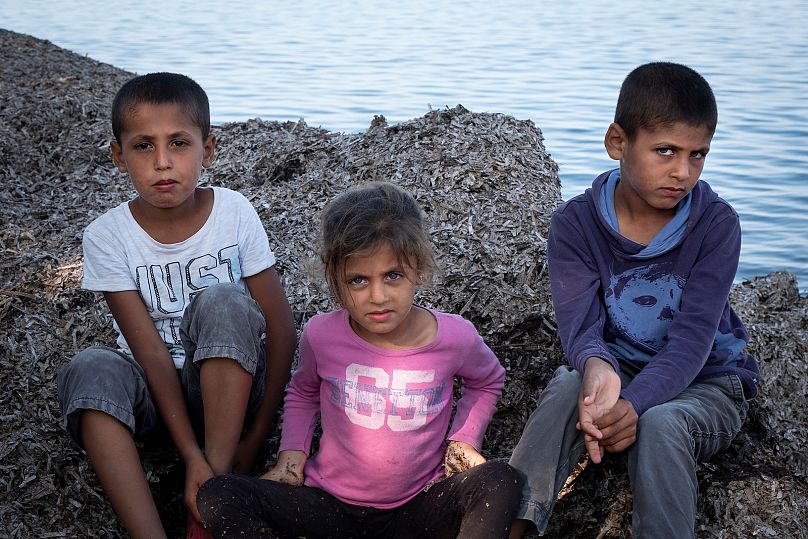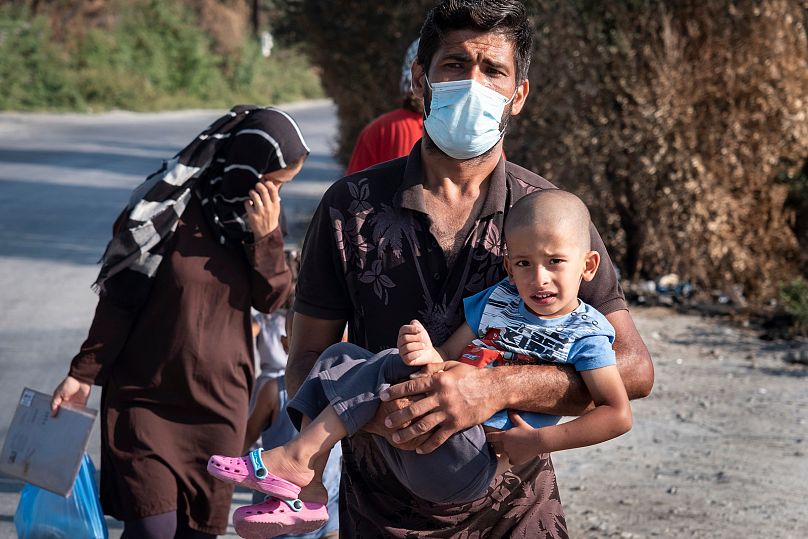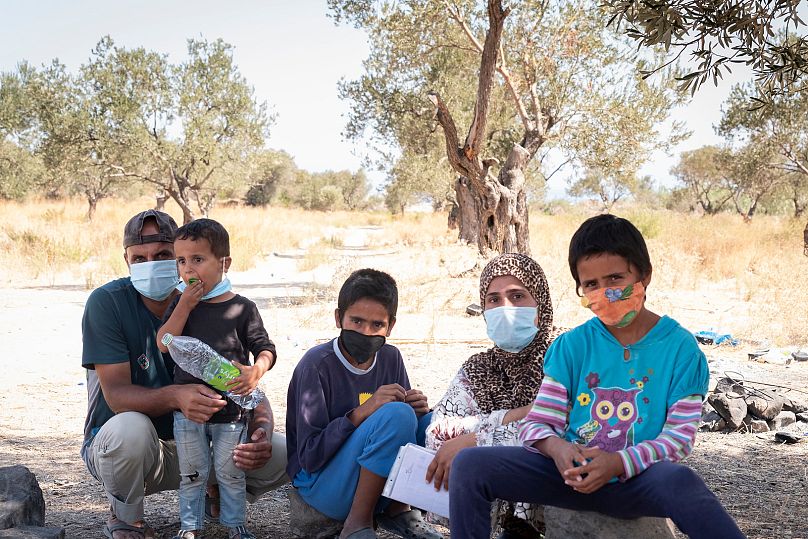To mark International Migrants Day on December 18, Save the Children Europe director Anita Bay Bundegaard reflects on Europe’s need to uphold its core values and make sure all children stranded on the borders with Europe are safe.
On September 2, 2015, three-year-old Alan Kurdi lost his life just off the Turkish coast. Images of his dead body became a tragic symbol of the human cost of the EU’s inhumane response to migration.
It was hoped that Alan’s story – sadly, one of too many children who died during the treacherous crossing to find safety in Europe – would spur change in the European migration and asylum system so that migrant and refugee children would be better protected.
Six years on, children on the move are often even worse off. Tighter border policies, both at the EU border and between EU countries, have led to an increase in violence and other abuses against children.
Europe’s external borders – in Greece, Spain, Italy, Croatia, Bosnia-Herzegovina, Austria and Slovenia – have for years remained a children’s graveyard on the EU’s watch.
Just this year, 1.600 people, including dozens of children, died or disappeared in the Mediterranean Sea while trying to reach Europe from North Africa or Turkey.
Today, children are freezing to death on Europe’s eastern frontiers. They continue to drown trying to cross the English Channel. The death toll is on the rise on the Atlantic route between Western Africa and the Canary Islands.
What compels a child to leave home?
Children make up a significant proportion of those seeking a new life in Europe. In November this year, 27.1 per cent of migrants arriving by sea in the Mediterranean were women or children.
Scholars also talk about the 'infantilisation of migration': more and more children are being compelled to leave their homelands, with one in every eight migrants worldwide a child.
Like adults, children and young people leave their homes for different reasons: to flee war, conflict or crippling poverty, for environmental reasons such as after natural disasters, or to escape human rights violations and abuse.
While the reasons to migrate may vary, they all share the same predicament. No one would attempt a long and treacherous journey if they had a better option.
Leaving one’s country to seek asylum in another is not a decision made lightly. For people on the move, it means the situation is so dire the parents have had no choice but to risk their children’s lives, because the alternative at home is worse, and unbearable.
Children's experience of migration
In a search of a better future, children go through unimaginable journeys, and are too often victims of more violence and exploitation – especially those who have been separated from their parents or caregivers.
When they do reach safety, these children often face criminal-style treatment, regarded as a 'hybrid threat' or a 'danger to national security' - as though they were a platoon of commandos from a hostile nation, poised to attack and threaten European civilisation.
Dehumanising language and the blanket characterisation of people in migration are just a few of the key ingredients leading to violence and mass atrocities.
The erection of barbed-wire fences at borders across the region, with security forces perpetrating illegal pushbacks, has now become the new normal: something unimaginable even a few years ago.
Children are children, not threats. No matter the circumstances, all children have a right to safety, protection and a future.
While protecting Europe’s frontiers, we must also protect children fleeing for their lives, stranded at the borders, living in destitute conditions, being pushed back into the woods or the sea, and facing separation and detention.
Children and families at greater risk of breakup
To make already inhospitable migration policies worse, the recent situation at the EU’s eastern external border has led to substantial changes in domestic asylum legislation.
Some of these changes are incompatible with the EU asylum acquis, the fundamental rights embedded in the EU Treaties and international law.
Save the Children, together with more than 100 other NGOs, has raised concerns about this worrying national trend, seeking a firm rejection of the discourse from the EU Commission.
Instead, the Commission has tabled a number of derogations. These unprecedented proposals not only diminish important safeguards procedures for children; they risk exposing migrant children to systematic detention. These measures are being neither proportionate nor helpful in providing any support to the countries concerned.
Instead, the EU must redirect efforts to restore respect for international law and invest more strongly in providing solutions, while also ensuring the humane treatment of children and families.
There is a need for a renewed, collective political commitment to use existing responsibility-sharing mechanisms, such as voluntary relocation and family reunion procedures, to protect those on the move.
Relocation policies, rooted in the region’s longstanding commitments to child well-being, recognition and support of best interests and the unique needs of each child, should be prioritised, along with fast family reunion procedures.
In addition, safe and legal migration pathways, including resettlement and family reunification, could prevent more children from dying on their way to Europe.
Time for Europe to honour its own values
Fifteen EU member states have recently pledged to help 60,000 refugees, including 40,000 Afghans, through resettlement and humanitarian admission by the end of 2022. A good step in the right direction, but this needs scaling up.
Finally, migrant children should not be instrumentalised for political purposes. The EU must show unwavering commitment to treating people in need as human beings, not political props. Their right to safely claim asylum must be guaranteed.
The EU’s dismantling of its standards is a timely reminder to approach the complex issue of migration with solidarity and justice.
Instead of entering 'the age of walls and barbed wire' and reinforcing 'Fortress Europe', the EU should continue to be the global torchbearer for the rule of law and human rights, just as its own fundamental values prescribe. The direction EU policies are taking will cost even more children their lives.
Anita Bay Bundegaard is the director of Save the Children Europe and previously its UN representative in Geneva. She is a former Danish Minister for Development Cooperation and former advisor to the UN High Commissioner for Refugees.














